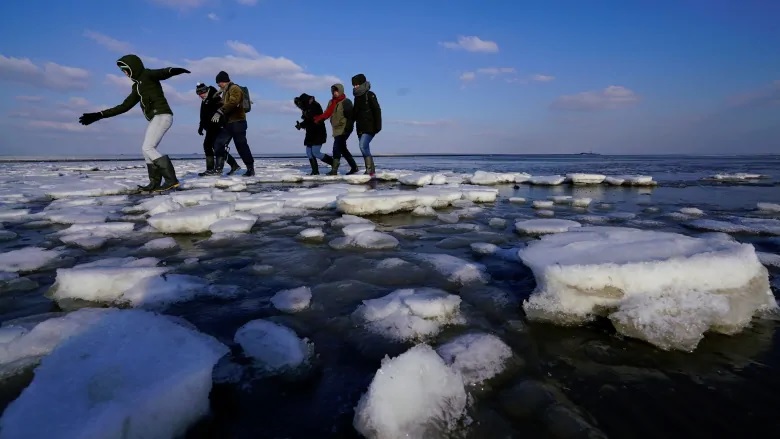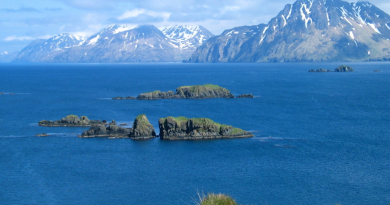Bizarre winter weather in South caused by changes in atmosphere, not sea-ice loss: study

There’s a link between sea-ice loss in the Arctic and frigid winter weather much further south — but it’s not what some researchers had previously thought, according to a new study.
The study, published last week in the journal Nature Climate Change, suggests sea-ice loss and unusually cold winters in the midlatitudes of North America and Asia are both caused by large changes in atmospheric circulation, which move warm air to the Arctic and cold air to the south.
Previous research suggested ice loss could be causing the chilly, southern temperatures — because as areas of open water increase, the ocean loses heat to the atmosphere, which can lead to temperature changes even far away.
But climate change models didn’t support that cause-and-effect theory.
It was “an interesting idea, that things that are happening in the Arctic could be impacting, you know, where most people live, in the midlatitudes,” said Russell Blackport, lead author of the paper and a mathematics research fellow at the University of Exeter.
“We found that things didn’t really make much sense.”
The study “puts to rest the notion that Arctic sea-ice loss caused the cold mid-latitude winters,” said John Fyfe, a research scientist with the Canadian Centre for Climate Modelling and Analysis who was not involved in the research, in an accompanying commentary.
Shrinking ice
Blackport said the research is important as the Arctic is rapidly changing. According to satellite observations since the late 1970s, winter Arctic sea-ice has decreased by about half a million square kilometres per decade.
While it’s expected that Arctic sea-ice will continue to melt, Blackport said people in the midlatitudes shouldn’t prepare for an onslaught of deep freezes every winter like they’ve seen in recent years.
“It’s very likely that winters will become less severe and they’ll become warmer, although there is still lots of … variability so it’s still possible we could still see some harsh winters but that’s going to become less and less likely in the future,” he said.
The study did not look into what’s causing the changes in atmospheric circulation behind the sea-ice loss and cold winters, but Blackport said they could be random.
“We think it’s likely … that it’s just random chaotic variability, although there is a potential that it was also influenced by ocean temperatures in the tropics.”
Related stories from around the North:
Antarctica: Could snow cannons in Antarctica help avert catastrophic sea level rise?, Eye on the Arctic
Canada: Communities in Nunavut, Arctic Canada on track for warmer than normal summer, CBC News
Finland: Cooler summer weather has positive effects in Finland, Yle News
Greenland: Greenlanders stay chill as the world reacts to its heatwave, CBC News
Iceland: Iceland glacier lost to climate change to get memorial ceremony this month, Eye on the Arctic
Norway: Arctic summer 2019: record heat, dramatic ice loss and raging wildfires, The Independent Barents Observer
Russia: Greenpeace Russia calls for more resources to fight Siberian wildfires, Eye on the Arctic
Sweden: Local councils in Sweden more interested in climate change preparedness, Radio Sweden
United States: A breakdown of wildfires raging in southcentral Alaska, Alaska Public Media



